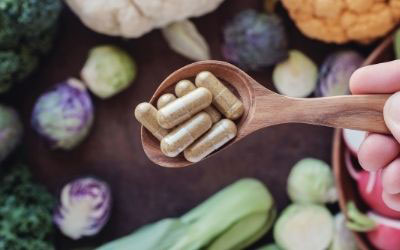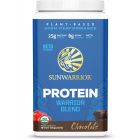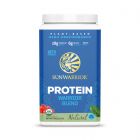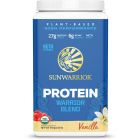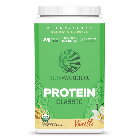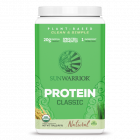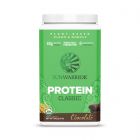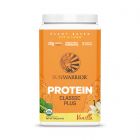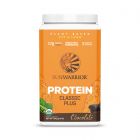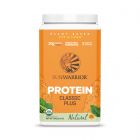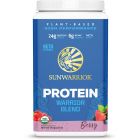5 tips for vegan strength athletes - Marvin Grouw
- By Algemeen Gastblogger
- 10 May 2022

By Marvin Grouw - The Dutch are increasingly opting for a vegetarian or vegan diet. We consume less or no animal products at all and thus contribute to a better world. In the world of strength training, however, it is often still thought that meat is essential for progression. Yet you can also get stronger and more muscular on a plant-based diet. In this blog we give 5 tips for vegan strength athletes, focused on nutrition, training and recovery!
Vegan strength sports tips
In this blog we will give you more information about the following topics:
- Progressive Overload
- The importance of rest
- Calculate your calorie needs
- Supplements for vegans
- Vegetable proteins

Progressive Overload in strength training
The first tips also apply to athletes who do eat animal products. Progressive Overload is important for everyone who wants to become stronger, more muscular, and fitter. It is a training principle that ensures that you continue to make progress and do not get stuck at the same level.
In strength training, you can achieve Progressive Overload by increasing the intensity of your workouts weekly. You do this, for example, by using heavier weights or by doing more repetitions with the same weight as the previous workout. In this way, you continue to challenge and stimulate your muscles to grow.
For example, with the Bench Press, you can use a distribution like the one below to create an overload. Are you unable to press the heavier weight? Then try to make extra reps with the previous weight.
- Week 1 = 80 kilograms
- Week 2 = 82.5 kilograms
- Week 3 = 85 kilograms
- Week 4 = 87.5 kilograms
- Week 5 = 90 kilograms
Take enough rest to recover
During a heavy workout, small tears appear in your muscle tissue. Your body needs time to recover this property. It is therefore important to give your muscles enough rest. Only then can your body repair the microscopic tears and make your muscles stronger. This process ensures that you become stronger and build more muscle.
Are you not giving your body the time it needs to recover? Then you will not be a progression. In fact, there is a good chance that it will become overloaded and thus deteriorate. How do you prevent this? By putting together a fitness schedule with a good balance between training and recovery moments.
So it is not smart to train your whole body (or the same muscle groups) every day. There is not enough time in between to fully recover. Do you go to the gym 3 times a week? Then you can opt for a Full Body workout with one day between your workouts. For example, train on Monday, Wednesday and Friday. Do you go to the gym 4 or more times? Then a split schedule is recommended. You train a combination of muscle groups every workout so that you train other muscles afterward. For example chest and triceps on Monday, back and biceps on Tuesday and then legs and shoulders on Wednesday.
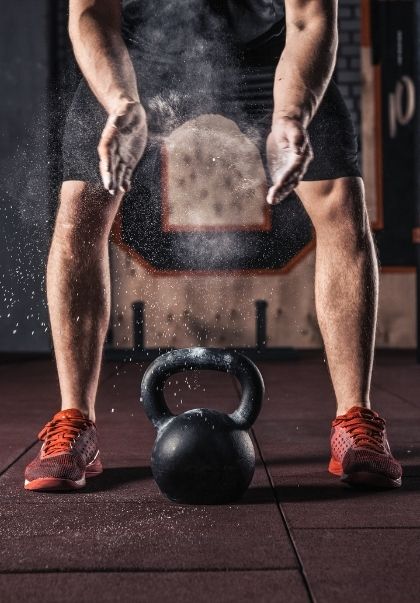
Calculate calorie requirement
Athletes who change their diet and go vegan will lose weight in the beginning. This is because animal products are often higher in calories.
For vegan strength athletes who want to build more strength and muscle, this weight loss is usually not desirable. To continue to ensure that you consume enough calories to build muscle, it is wise to calculate your calorie requirement.
By gaining insight into your calorie consumption, you know how many calories you need daily to maintain your weight. Do you want to build muscle? Then you will be about 300 to 500 kcal above this daily. It can be difficult to estimate how much energy you use in a day.
This depends on, among other things, weight, fat percentage, age, and activity level. Fortunately, you can calculate this online with a handy tool like this calorie requirement calculator from Nutrition-and-fitness.nl.
High-calorie vegetable foods include nuts, kernels, seeds, avocado, soy products, vegetable oil, and meat substitutes.
Supplements for vegans
An important tip for vegan strength athletes is about choosing the right supplements. If you eliminate all animal foods from your diet, there is a chance that you get too little of certain substances. These nutrients are mainly found in animal products and less in plant products.
For vegans it may be useful to use these supplements:
- Iron
- Vitamin B12
- Calcium
- Zinc
- Creatine
Iron is important in oxygen transport in the blood and oxygen storage in the muscles. Iron deficiency can lead to anemia, fatigue and dizziness. Plant foods contain iron, but this is non-haem iron. And this is less well absorbed in the body than haem iron, which is only found in animal products. Vegan sources of iron include apple syrup, cashew nuts, quinoa, tofu, seitan and spinach.
Vitamin B12 is involved in the formation of DNA, red blood cells and nervous tissues. B12 is also important for good resistance. Because it is mainly in animal products, it is always recommended that vegans take extra vitamin B12. It is almost impossible to get enough B12 with vegan food.
Although it is more difficult to get enough calcium, a supplement is not always immediately necessary. As a vegan, you can take calcium-rich vegetables such as broccoli, spinach and kale. Many vegan products are also fortified with calcium these days.
Zinc is important for the immune system and energy metabolism. It is mainly found in meat and dairy, products that you no longer use as a vegan athlete. Plant-based sources of zinc include grains, nuts, legumes, and rice. But many vegan strength athletes opt for supplementation.
Finally, a special reference for creatine. Creatine helps to increase the explosive powers used by many athletes. Because creatine is also obtained from meat, the effect of a creatine supplement in vegans is often even greater. After all, they have lower creatine levels than meat eaters.
Getting enough protein as a vegan
Proteins play an important role in maintaining and building muscle. It is therefore essential for athletes to get enough protein. In general, as an athlete, you need about 1.8 to 2 grams of protein per kilogram of body weight. Do you weigh 80 kilograms? Then you will need to get about 160 grams of protein daily.
It is slightly more difficult for vegan strength athletes to get a lot of protein since products such as meat, fish, and dairy contain a lot of protein. Fortunately, there are plenty of protein-rich plant foods, such as nuts and seeds, legumes, grains, and beans. In addition, the range of vegetable protein powders is increasing.
As a vegan, take into account the biological value of proteins. The biological value says something about the amino acid profile of protein. Unfortunately, animal proteins often contain a better amino acid profile, with more essential amino acids. As a result, the protein requirement for vegan strength athletes is slightly higher. To get enough valuable amino acids, you need about 20% to 25% more protein per day. It is also important to combine protein sources, such as grains with nuts or grains with legumes. Quinoa, soy, and hemp seed contain all 22 amino acids and are therefore very weight for vegan athletes.
Are you vegan or do you want to cut down on meat consumption? Then use our tips and achieve the best results in the gym!
This blog was written in collaboration with Marvin Grouw of Nutrition-and-fitness.nl





